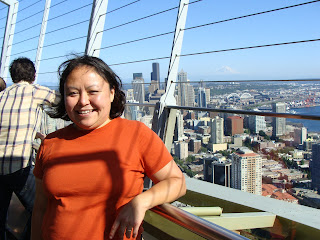One of my favorite shows is "Cops." I liked watching it before I went to law school, and now, a few months from getting my J.D., I still like it. It's fun to watch out for Fourth Amendment violations (rare) and listening for the admissible incriminating statements made by the freshly-arrested (common).
I also pay attention to the news, especially the crime stuff. To be fair, a lot of this is probably me trying to confirm my own biases. But I think I'm right.
At any rate, it doesn't take a PhD in criminology to figure out that a supermajority of people who are in the criminal justice system were intoxicated at the time of arrest, mentally ill, or both. Thus, most "crime" is basically people (usually men) being high and behaving badly. This was true in the district court in which I handled misdemeanor cases last summer, and it's true on Cops and in the news.
Also, a supermajority of people in jails and prisons are illiterate, do not have a high school diploma or GED, or both.
Also, a supermajority of violent crime victims knew the assailant.
Also, a supermajority of criminals are poor.
From these facts, I draw two conclusions.
1. If you do not know any poorly-educated people, or are not around people who are high, then one's chances are being the victim of a crime are really, really low. Thus, you have very little to be afraid of regarding crime and criminals.
2. Crime is directly connected to intoxication. Put another way, one of the possible effects of extreme intoxication is crime. And extreme intoxication, or substance abuse, is a pretty strong indication of addiction. Thus, trying to reduce crime is as simple - and as unlikely - as trying to reduce addiction.
One way to react to crime is to arrest people after the fact. Another way is to reduce the number of criminals. A serious approach would be to encourage addiction and mental health treatment. But addiction treatment requires resources, especially a network of sober people, and poor people who are poorly educated and have addiction or mental health condition have very little in the way of those resources.
Either way, taxpayers are on the hook. But one approach expands the police state, and the other way doesn't.
Human biases point us towards the police state. First, we scare easily. Most people have virtually nothing to fear from most crime, but "criminals" are scary.
Second, it is really hard to treat people for mental illness or addiction. They are lifetime conditions, which require occasional intensive involvement by trained professionals, and trained professionals are expensive. And everything they do is secret, or out of public view, and kinda boring. Few TV shows portray this world.
On the other hand, cops are awesome, and so is Cops. Many TV shows portray this world.
Relatedly, it is much, much easier politically to demand more cops, prisons, and tougher laws, even though none of it can stop people from getting high and hurting people they know.
Also, it is much, much easier to become a cop than an effective mental health professional. No offense to cops: I love 'em. But cops are not responsible for changing the behavior other people, which is probably the hardest thing there is.
I'll build more on this later.



